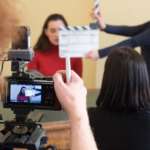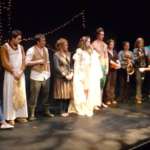Considering a Music Course?
You do not need to be a prodigy or a genius to experience the benefits of music and music education; research has shown that the benefits of musical education in a person’s life will have long-lasting effects even long after the person has stopped regularly practicing their music skills.
Picking up an instrument at any age can provide some huge benefits for intelligence, physical well-being, and the brain. Playing an instrument requires your auditory, motor, sensory and visual systems to all work together. This inner system co-operation has some incredible outcomes that can affect so many areas of your life.
Different intensities of training will produce different outcomes, but even the most minimal practice can make a difference – starting to play an instrument for just one hour a week for a few months can cause growth and increased activity in the parts of your brain responsible for memory, hearing and motor function.
Music is unique in the way that it demands focus and critical thinking while promoting individualism and creativity. Music requires you to use multiple parts of the brain – deciphering the notes and rhythms in one part of the brain while creating beautiful and emotional filled melodies with another part of the brain
Musician’s brains have better communication between the left and the right hemispheres which allows for more cooperation and out-of-the-box thinking. Neuroscientists have even found that the corpus callosum, which is the link between the left and right brain hemispheres is much stronger in musicians than in non-musicians.
Why is learning Music so important?
Musical education enables success not only in the art of music itself but in all areas, academically and socially. Music helps to improve language skills, critical thinking skills, emotional moderation, and all-around brain function by strengthening the pathways in the brain through practice and exercising of the brain’s function. Children who play musical instruments have also been shown to have better memory, more responsibility and consistency, and a greater level of expressiveness.
Music and singing provide opportunities to practice patterns, math concepts, and symbolic thinking skills from birth through to old age. Music and singing are also very fun and engaging for all ages, making it a pleasurable learning experience.
Music benefits memory and helps us to remember; often a song will trigger a memory and emotion from the past and is very beneficial, especially in old age. A common technique for remembering information while studying is to create a song or rhyme about the content you are trying to memorize.
Music is also very important for family and social bonding as it can involve every member of the family and let older generations pass down songs, rhymes, and music from their culture and heritage. Music is often combined with dancing or playing instruments together and is very much a social experience. A young child will often carefully observe adults or older children when they are singing or dancing, and as they learn to master these actions themselves they will also build confidence and start to engage with others.
People who play musical instruments are better at other practical things too, such as processing emotions, learning something new like another language, or creative problem-solving. Playing an instrument utilizes the visual, auditory, and motor function parts of the brain and acts like a mental workout strengthening the connections between the three areas.
It has been found that just listening to music can prompt the repair and regeneration of damaged nerves in the brain. Learning to play an instrument, even in later years, has been linked to a significantly lower risk of developing dementia and other cognitive impairments.
If you’re serious about doing a course in Music, check out courses in the Nightcourses.co.uk national course finder.





